Welcome back class.
My impression is that most people don’t know what The Awakening by Kate Chopin is—I definitely didn’t when I read it for the first time for a college class. It’s a novella, 39 short chapters, focusing on a woman’s deterioration and transformation (a lot like The Bell Jar and Anna Karenina—probably why it didn’t make the list, since it made less of an impact than two other well-known and similar novels).
But The Awakening sets itself apart—what looks like the deterioration of a character may actually be a kind of empowerment. Where Anna Karenina depicts a woman who succumbs to her own loneliness, and The Bell Jar features a woman who attempting to conquer depression, The Awakening focuses on a woman who, above all, breaks free. To the other characters in her life, it looks like hysteria or psychosis. But there may be something more to her predicament.
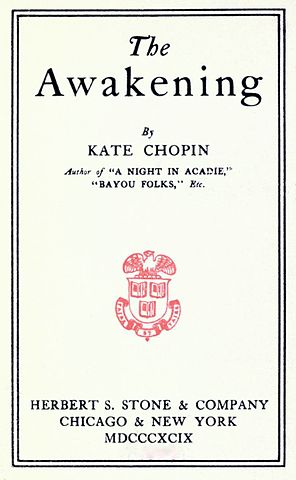 Protagonist Edna Pontellier is a caged woman—a mother and wife living at the turn-of-the-century in New Orleans. Her cage is her husband, her children, even her own mind’s tiredness . . . she is asleep, in more ways than one. A series of small emotional prods begin to “wake her up” and clue her in to the nature of her life, which she realizes she doesn’t want. Her happiness has been set aside for the sake of who she is supposed to be, but it’s never a life she wanted.
Protagonist Edna Pontellier is a caged woman—a mother and wife living at the turn-of-the-century in New Orleans. Her cage is her husband, her children, even her own mind’s tiredness . . . she is asleep, in more ways than one. A series of small emotional prods begin to “wake her up” and clue her in to the nature of her life, which she realizes she doesn’t want. Her happiness has been set aside for the sake of who she is supposed to be, but it’s never a life she wanted.
A woman in Edna’s life named Adèle helps her realize her caged-ness, which upends life for Mr. Pontellier and their children. She begins to abandon them and all other “obligations.” But she isn’t searching for her own happiness anymore—that’s too cheap a thing to sacrifice a family for, even one she doesn’t want. Edna abandons the things that she’s supposed to be tethered to by Nature’s command. Societal restraints, emotional attachments, marital vows, human instinct . . . she eventually abandons all of these attachments, even her body’s attachment to life. For Edna, this is what it means to be awake: to break free of the cage Nature has put us in.
There’s no doubt that The Awakening is controversial. It seems to champion suicidal behavior in a way that even The Bell Jar couldn’t boast of. Edna’s decision to abandon her children is sorrowful at best, deplorable at worst. Even seeing Edna’s actions as a kind of awakening is controversial—her choices easily indicate a disturbed mind.
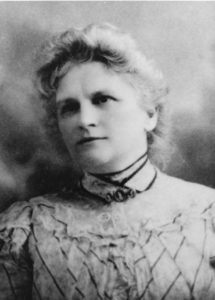
Author Kate Chopin
Chopin keeps it complicated. If we as readers are to really believe Edna’s motivations as a true awakening of self, we have to attribute some sense to her actions. But I wouldn’t say Chopin’s goal is to get us to sympathize with Edna’s frame of mind—I think that Chopin’s goal in writing The Awakening was to make us question our motives as human beings, and to question the characteristics humanity lends itself to, like parenthood, desire, loyalty, and even love. What if love is some kind of evolutionary imperative that keeps the species alive? Are we trapped in a cage, like Edna, because of our “obligation” to emotions like love, or concepts like humanity?
To make people ask questions like that is enough reason to put The Awakening on the list of 50 books to read before you die—as it should have been.
I’m still finishing up The Diary of Anne Frank. It’s a complete leap from The Awakening—I’m getting a little whiplash thinking about both at once. Chopin’s fictional story lets me question the flaws in human nature, but Anne Frank’s story will restore my faith in it, even with the stakes she faced.
I look forward to sharing my thoughts on her story next time.
Prof. Jeffrey
 Protagonist Edna Pontellier is a caged woman—a mother and wife living at the turn-of-the-century in New Orleans. Her cage is her husband, her children, even her own mind’s tiredness . . . she is asleep, in more ways than one. A series of small emotional prods begin to “wake her up” and clue her in to the nature of her life, which she realizes she doesn’t want. Her happiness has been set aside for the sake of who she is supposed to be, but it’s never a life she wanted.
Protagonist Edna Pontellier is a caged woman—a mother and wife living at the turn-of-the-century in New Orleans. Her cage is her husband, her children, even her own mind’s tiredness . . . she is asleep, in more ways than one. A series of small emotional prods begin to “wake her up” and clue her in to the nature of her life, which she realizes she doesn’t want. Her happiness has been set aside for the sake of who she is supposed to be, but it’s never a life she wanted.
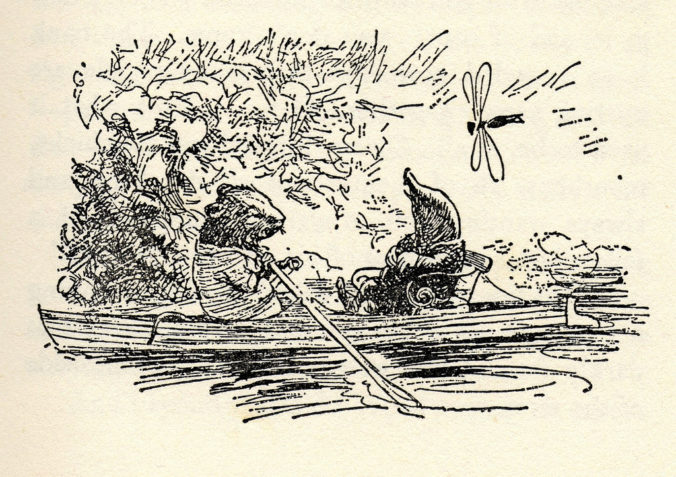
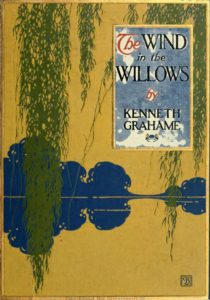 The Wind in the Willows is one of the most pleasant stories I’ve read in a long time. It’s short and entertaining, full of talking animals on crazy adventures, and never shallow enough to lose suspension of disbelief. More importantly, it’s a children’s story—easily what a parent would read to their children every night, which means unlike most novels on the 50-books list, this actually is something everyone should (and could) read.
The Wind in the Willows is one of the most pleasant stories I’ve read in a long time. It’s short and entertaining, full of talking animals on crazy adventures, and never shallow enough to lose suspension of disbelief. More importantly, it’s a children’s story—easily what a parent would read to their children every night, which means unlike most novels on the 50-books list, this actually is something everyone should (and could) read.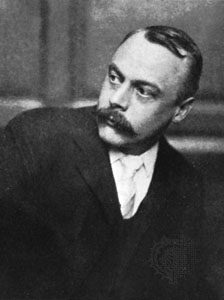
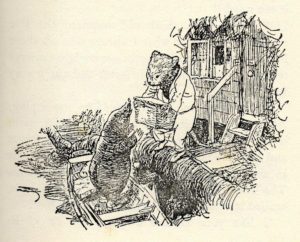 I do still question it’s inclusion on the list. The excellent writing and the portrayal of a child’s fantasy dreamworld is already on the list—
I do still question it’s inclusion on the list. The excellent writing and the portrayal of a child’s fantasy dreamworld is already on the list—
Recent Comments